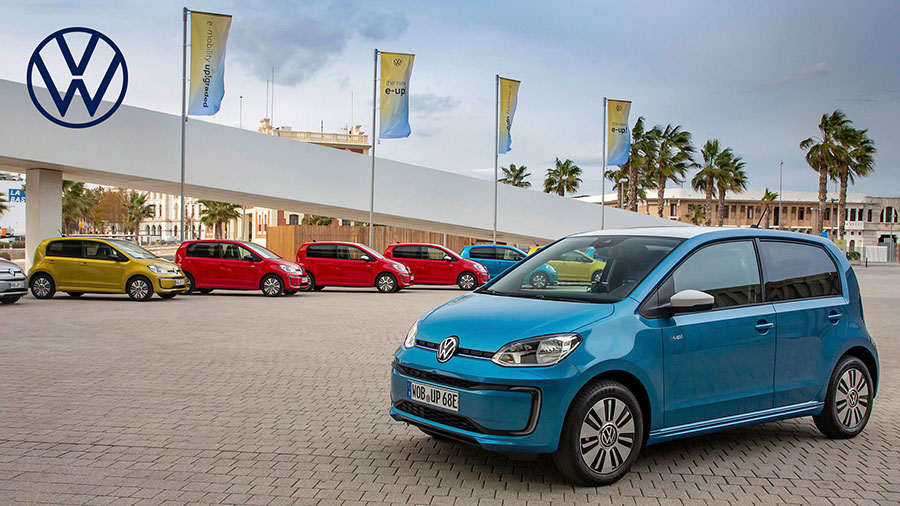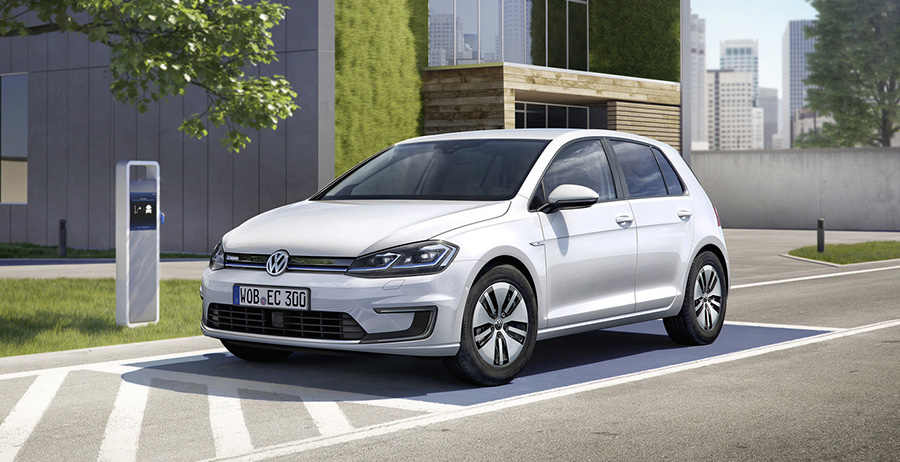The recently decided, significantly higher electric car subsidy in Germany appears to be working. The proportion of electric vehicles in the configured vehicles at Carwow, a comparison portal for buying new cars, rose on June 4 – the day the higher incentive was announced – from 10 percent to 45 percent on the same day the previous week.

Demand also increased significantly on the online platform Meinauto.de. In May, it was 13.2 percent for electric vehicles, but rose to 23.6 percent with the purchase incentive. The greatest interest was in the VW e-up!, VW e-Golf and Renault Zoe models, explained Managing Director Marco Steinfatt. The Neuwagen24.de portal also stated on request that an increased interest in electric cars could be determined. In addition to the VW e-up! As a result, the BMW i3, Honda e, Kia e-Niro models and the electrical versions of the Hyundai Kona and Ioniq models are particularly in demand.
Demand could increase by 40,000 vehicles
An assessment by the management consultancy Deloitte also confirms that the coalition’s stimulus package gives the sale of electric cars a strong tailwind in Germany. As a result, sales on the German market are likely to increase this year by 40,000 to up to 200,000 electric and hybrid cars, while sales of petrol and diesel cars will remain below that of the previous year. A pleasant side effect: the German car manufacturers would meet the CO2 requirements due to the increase. Next year, penalties that will be due this year if the CO2 fleet limits are exceeded will be lower thanks to the shift towards electromobility, said Deloitte industry expert Harald Proff.
The coalition wants to double the purchase subsidies for electric cars to up to 6000 euros by the end of 2021. It also cuts VAT by three percentage points for half a year. An electric car, for which an average of 38,000 euros would be paid in Germany today, would be an average of a good 4,000 euros or eleven percent cheaper, said Proff. The package also includes tax benefits for electric company cars up to a purchase price of EUR 60,000 and billions in grants for the construction of charging stations. “The market is responding to this,” said Proff.
Limited capacities means long delivery times
However, the purchase of an electric car could be a test of patience for many customers, since the production capacities are limited – and the now increasing demand should further extend the waiting times. For example, the comparatively cheap Seat Mii electric can no longer be ordered in 2020, from its corporate brother VW e-up! According to the online portal Carwow, the delivery time was around six months before the higher incentive, so customers even have to wait around 12 months for a Kia e-Niro.

The incentive will further extend these waiting times, auto expert Ferdinand Dudenhöffer also said in an interview. “Delivery times will only decrease in the next few years if the capacities of the battery cell manufacturers increase,” said Dudenhöffer.
Study sees expansion of charging infrastructure as a more important lever
A study by the Leibniz Center for European Economic Research (ZEW) shows how important external impulses when switching to an electric car can be in addition to costs and delivery times, which is available from the “Süddeutsche Zeitung”. According to the study, customers of the car sharing provider Flinkster used a combustion engine significantly more often with the same prices and availability, the mileage of the all-year-round EV was 79 percent lower, while for private vehicles there was hardly any difference between the mileage of petrol and electric cars. According to the researchers, this difference is due to the so-called status quo distortion, according to which people prefer the current state to changes – in other words, when in doubt, carsharing would rather go into the familiar combustion engine.
Another concern is the worry of running out of battery juice on the go. According to the researchers, this is unfounded because 82 to 92 percent of the daily trips made by the Germans can also be done with an electric car. However, drivers need to be able to reliably recharge their cars if necessary. The researchers therefore see the expansion of the charging infrastructure, which is also part of the economic stimulus package, as an important lever in promoting electromobility. However, it is currently questionable whether the increase in subsidies for e-mobility can permanently help to achieve a breakthrough, according to the ZEW researchers.









